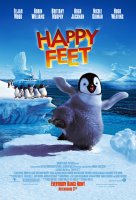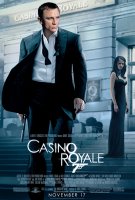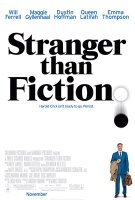The Fountain

Immediately after watching Darren Aronofsky’s latest film, “The Fountain,” I began to worry that perhaps I missed something. Maybe there was some deeper meaning woven into the film that I, in my post-Thanksgiving stupor had failed to pick up. There was also the issue of style.
Directors these days all seem to have their own personal styles that absolve them from their cinematic wrong doings. If I really hate a movie and I give a detailed description of my distaste some fellow movie viewer might suggest that maybe I just didn’t “get” that director’s style.
Did no one ever hear that form is supposed to follow function? “Kill Bill” this isn’t, in a movie that tries for lofty messages and heavy theological/philosophical meanings it is important that these grandiose ideas are communicated successfully to the audience.
I consider myself to be a pretty astute patron of the silver screen, and I’ll stand behind my initial reaction to this movie; that it was bloated and pointless. This is surprising because in each and ever shot you can practically touch the careful consideration of the filmmaker. It doesn’t take long for drawn out sincerity to become boring repetition.
The concept of the film, in as much as I could perceive, is a tale in three time periods featuring the same couple and the same basic ideas. In the time of Spanish conquistadors and ancient Aztec ruins, a man named Thomas Creo, played by Hugh Jackman, searches for the Tree of Life to bring immortal life to Queen Isabel, played by Rachel Wiesz, and himself.
In the present day a man named Tommy Creo, also played by Hugh Jackman, searches for a way to cure his terminally ill wife, Izzy Creo, played by Rachel Wiesz again. Izzy is nearly finished writing a book, called The Fountain, that tells the story of the Queen and the conquistador.
In the 26th century a man called Tom drifts through space toward the after life in what can only be described as a snowless snow globe holding the ironically dying Tree of Life and Tom.
The middle story is the most fully flushed and provides a bridge between the two of them. Obviously, Izzy’s characters are those in the first story, and Tom the astronaut is continually haunted by recurring memories of Tommy and Izzy Creo. Tom flying through space seems to be a metaphor for Tommy’s mental and spiritual journey.
The stages Thomas/Tommy/Tom journeys to and from are beyond me however because the story is so convoluted and mysterious that it leaves you trying to figure out the final outcome in each time period.
The film is a marvel to behold, as I previously implied it was shot with a keen eye for visual poetry. From start to finish there are so many marvelous and unique sights that I know I won’t forget them any time soon, if ever.
Unfortunately all these beautiful images are clouded by the fact that the story is utterly confusing and ultimately ineffective. Who are these people supposed to represent? What revelations do they experience that I can learn from? Is the conclusion that one should never stop fighting for immortality, or that there is creation in death? These are the things that fill my mind, and hearing that “one must take from the film what one feels they are meant to take” is not good enough.
I think Aronofsky was trying to send a message he considered very valuable. He ahs worked years to create this movie, even going so far as to completely rewrite the script after rejection of his original. The most depressing thing, far beyond a man lost forever in space or a conquistador consumed by the earth, is knowing that someone has tried so hard to tell the world something and has exquisitely failed.
C





